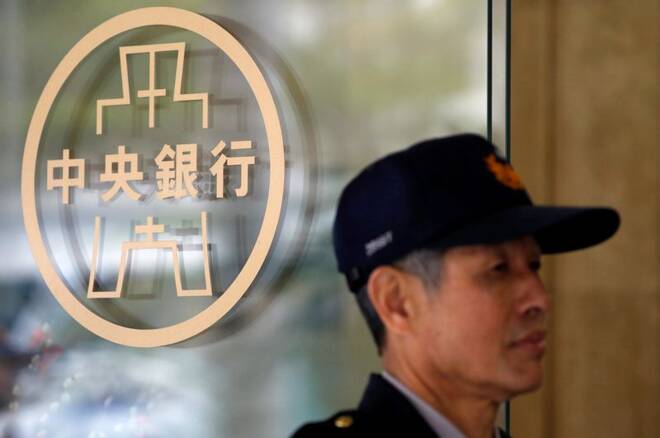Advertisement
Advertisement
Taiwan spent $8.25 billion to hold back currency depreciation in H1
By:
TAIPEI (Reuters) - Taiwan's central bank said on Wednesday that in the first half of this year it sold a net $8.25 billion to intervene in the foreign exchange market to try and arrest the Taiwan dollar's devaluation, adding currency stability was a must.
TAIPEI (Reuters) – Taiwan’s central bank said on Wednesday that in the first half of this year it sold a net $8.25 billion to intervene in the foreign exchange market to try and arrest the Taiwan dollar’s devaluation, adding currency stability was a must.
Taiwan’s currency and stock market have tanked in recent weeks due to aggressive interest rate hikes in the United States and U.S. dollar strength, as well as worries over slowing global economic growth.
The Taiwan dollar has depreciated 13% against the greenback so far this year.
In a report to lawmakers ahead of its governor taking questions in parliament on Thursday, the central bank said Taiwan is a small and open economy with a high degree of trade dependence, and a “thin” foreign exchange market.
“It is necessary to maintain the relative stability of the Taiwan dollar exchange rate,” it said.
By comparison, the central bank bought a net $9.12 billion for all of last year to intervene in the foreign exchange market when it was trying to prevent the Taiwan dollar appreciating too fast.
The bank said that for a long time, “large and frequent international capital movements” have posed a great challenge to the stability of the foreign exchange markets of small and open economies, affecting financial stability and prices.
Short-term cross-border capital movement has become an important factor affecting the Taiwan dollar’s exchange rate, which often fluctuates due to uncertainty about the monetary policy direction of major economies, it added.
While the Taiwan dollar has depreciated against the greenback, it has been relatively stable against other major currencies, the central bank said.
Taiwan has had “good results” from its managed floating exchange rate system, which is conducive to companies’ operations and contributes to domestic financial stability and economic growth, it added.
Taiwan is a major semiconductor manufacturer and has a trade-dependent economy, so the depreciating currency makes its exports cheaper and more competitive.
However, Taiwan is also resource-poor and relies on imports of raw materials and energy, which the depreciation of its currency has made more expensive.
(Reporting by Liang-sa Loh; Writing by Ben Blanchard; Editing by Andrew Heavens)
About the Author
Reuterscontributor
Reuters, the news and media division of Thomson Reuters, is the world’s largest international multimedia news provider reaching more than one billion people every day. Reuters provides trusted business, financial, national, and international news to professionals via Thomson Reuters desktops, the world's media organizations, and directly to consumers at Reuters.com and via Reuters TV. Learn more about Thomson Reuters products:
Advertisement
